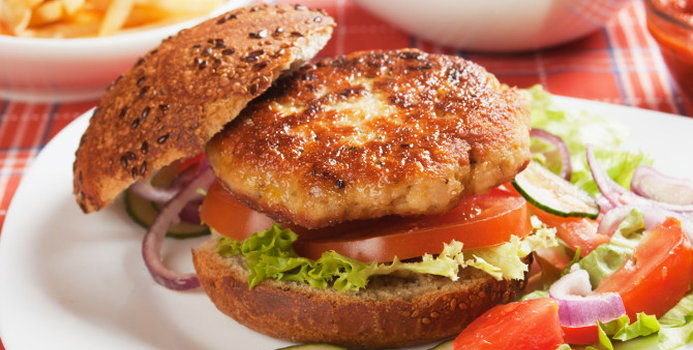Frozen diet foods: we know the names--Healthy Choice, Lean Cuisine, Smart Ones, Kashi, Weight Watchers and many others. Are these foods really good for us? The simple answer is: they can be as long as you know what to look for. Here's a quick look at the true story behind frozen diet foods.
The Advantage of Frozen Diet Food
Eating frozen diet foods does make it possible to lose weight. The reason is simple. These frozen meals are often sold in accurate size portions. When making food at home, it is hard to judge portion sizes, making it easy to overeat. Frozen diet foods have portions that are just right. If nothing else, eating these meals can help you learn the proper size portion you should eat with your meal.
The Disadvantages of Frozen Diet Food
Frozen diet foods are not as nutritious as meals you prepare yourself due to their often high preservatives and sodium content. Many frozen meals contain between 700 to1800 mg of sodium. With the daily-recommended maximum of 2300 mg of sodium, it is hard to stay under the maximum! This is even more important for high-risk eaters--such as those with high blood pressure.
Many frozen diet meals are less than 300 calories. Without any other calories to supplement them, 3 frozen meals a day will not provide enough calories for most people. The danger of undereating exists. Undereating causes your body's metabolism to slow down, making it harder to lose weight. It is also disadvantageous for those with active lifestyles.
Finally, many frozen meals do not provide enough fruits and vegetables to meet your daily nutritional requirements. Eating just frozen diet meals with no additional fruit and vegetables can lead to vitamin deficiency.
Here are some helpful tips when picking out your frozen diet foods that will help you with a healthier diet:
Frozen Fruits and Vegetables
When purchasing frozen vegetables, avoid ones with any kind of cheese sauce. These meals are high in calories and saturated fat. Secondly, avoid frozen fruits packed in syrup. The rule of thumb is this: check the ingredients. The only ingredients that should be listed in the fruits or vegetables you are purchasing are the fruits or vegetables themselves.
Chicken or Turkey Burgers
Always be sure to follow the directions when preparing this sort of frozen food. Some of these come precooked and others are raw.
Veggie Burgers
Always make sure that soy is either the first or second ingredient.
Frozen Meals
Frozen meals come in 2 types: light meals with less than 300 calories and 8 g of fat, and regular meals with 360 to 400 calories and up to 25 g of fat. Whenever possible, go for light meals. Also, find meals with lots of vegetables. Not only do these meals have fewer calories, they also have higher amounts of vitamins and fiber.
When eating a frozen meal, serve it with a salad or a side of fruits or vegetables--perhaps even a whole-wheat roll. Not only will you be more full after a meal and less prone to snacking, but you will also better be able to reach all of your nutritional requirements.
When purchasing a frozen meal, search for the following numbers:
- 250 to 300 calories
- Less than 4 g of fat
- Less then 800 mg of sodium
- At least 1 cup of vegetables
- ½ to 1 cup of brown rice or whole wheat pasta
- ¾ cup of beans or lean meat, fish or chicken
The important point to take away is that frozen diet foods are not healthy on their own. It is still important to pay attention to nutritional labels and plan your meals accordingly. They can be an important part of your diet, as long as you pay attention and make sure you are eating healthy.



